Annie Lennox, interview: the singer reflects on Eurythmics, Nelson Mandela and global feminism
The singer talks exclusively to The Independent about her one-off show at Sadler’s Wells in March in aid of her charity, The Circle
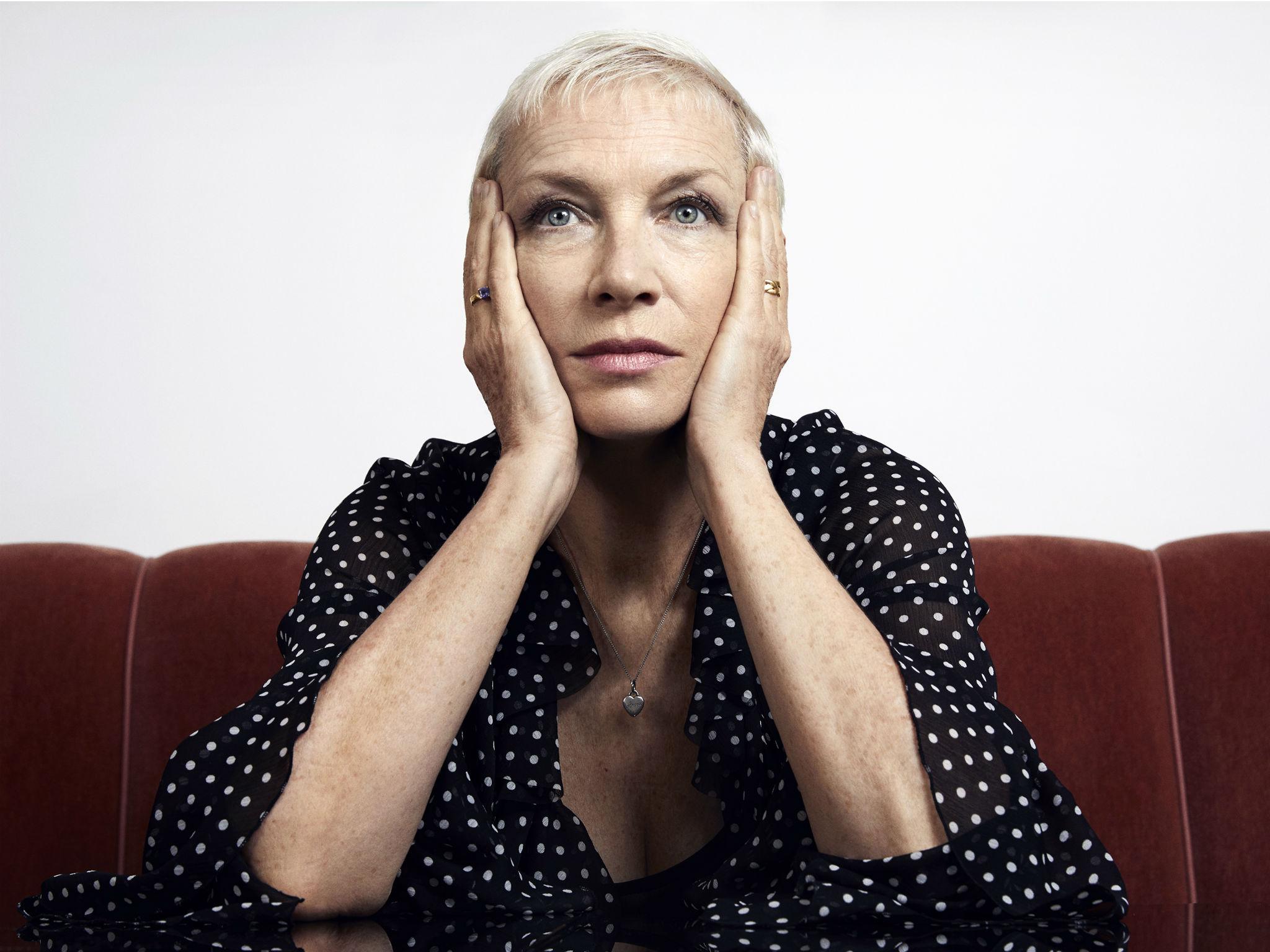
Your support helps us to tell the story
From reproductive rights to climate change to Big Tech, The Independent is on the ground when the story is developing. Whether it's investigating the financials of Elon Musk's pro-Trump PAC or producing our latest documentary, 'The A Word', which shines a light on the American women fighting for reproductive rights, we know how important it is to parse out the facts from the messaging.
At such a critical moment in US history, we need reporters on the ground. Your donation allows us to keep sending journalists to speak to both sides of the story.
The Independent is trusted by Americans across the entire political spectrum. And unlike many other quality news outlets, we choose not to lock Americans out of our reporting and analysis with paywalls. We believe quality journalism should be available to everyone, paid for by those who can afford it.
Your support makes all the difference.Annie Lennox is to perform hits including “Sweet Dreams (Are Made of This)” and her own personal favourite, “Here Comes The Rain Again”, at a one-night only event at Sadler’s Wells in March.
Titled Annie Lennox – An Evening of Music & Conversation, the former Eurythmics singer will also share “thoughts, memories and reflections” on her life and career, set against a backdrop of visuals of her in various musical phases, as well as some childhood photographs, in aid of her the charity she founded, The Circle.
“It’s very interesting reflecting at this point in my life,” says Lennox, now 62. “When I was younger I was looking ahead and never knew where I was heading.”
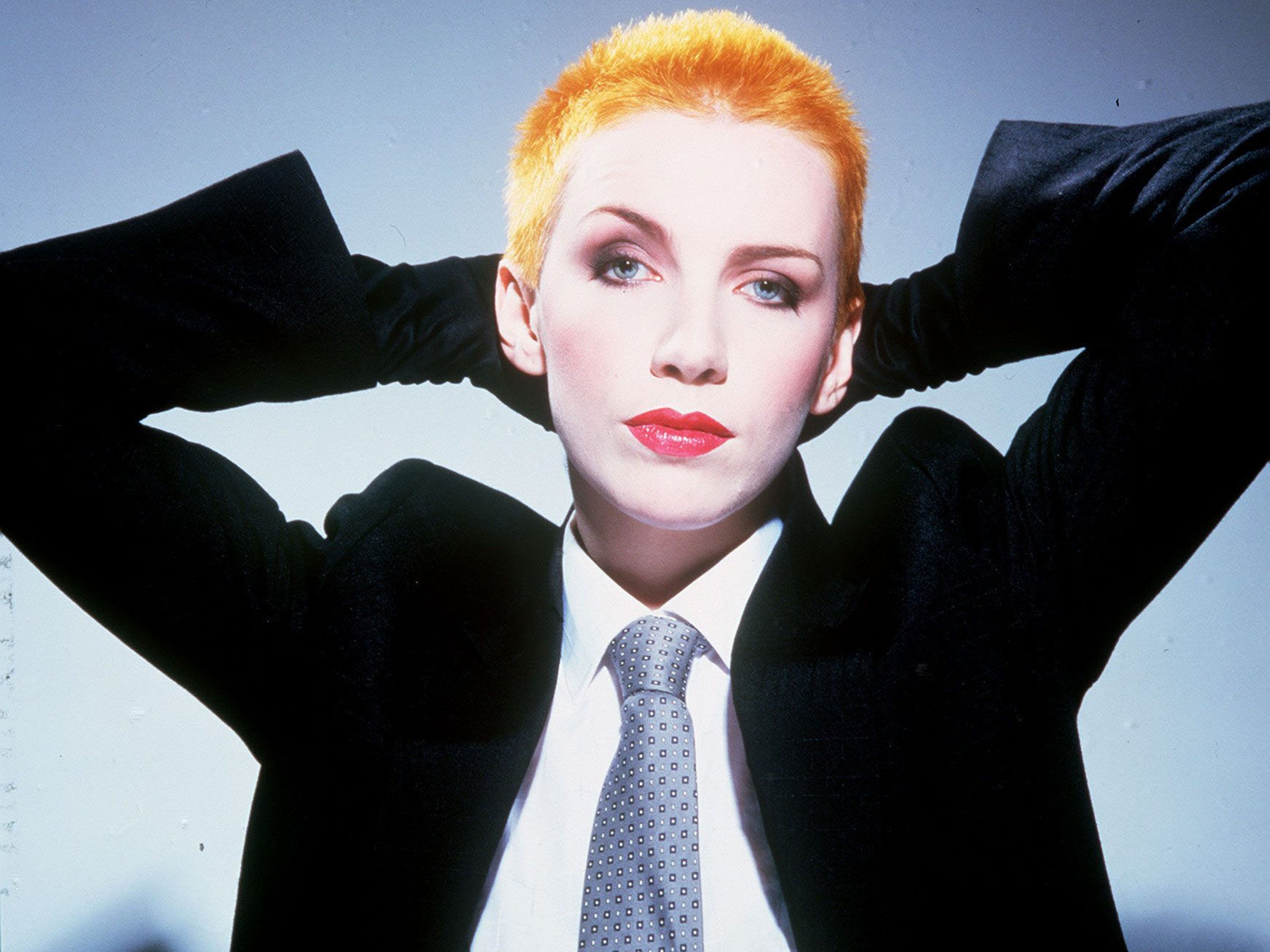
Much has happened to Lennox since she left Aberdeen for London at the age of 17. “I live with so many changes, not only with my career and life, but so many external things, global shifts. When I first started there was no such thing as a mobile phone or computer.
“I have a feeling that there is more change for me to come, but I don’t know what that is. I’ve learnt enough to know there are no guarantees in life, except death. It’s a good place to come from as you maximise the moment.”
Tickets for the event go on sale tomorrow. It will be the first time in more than a decade the singer has performed a standalone show in the UK. It is part of her mission in her latest role as a “global feminist”, rather than to promote an album, to raise money for The Circle, which through dialogue and active engagement, hopes to bring transformation to women and girls, who face injustice and inequality across the globe.
Lennox, who has sold more than 80 million records worldwide and has won more Brit Awards than any other female artist in history, was a prolific songwriter, both with Dave Stewart as part of the Eurythmics and as a solo artist, including on her debut solo album Diva (1992), Bare (2003), and Songs of Mass Destruction (2007). But since she has been a passionate advocate for women and children, she has found that she simply stopped writing songs.
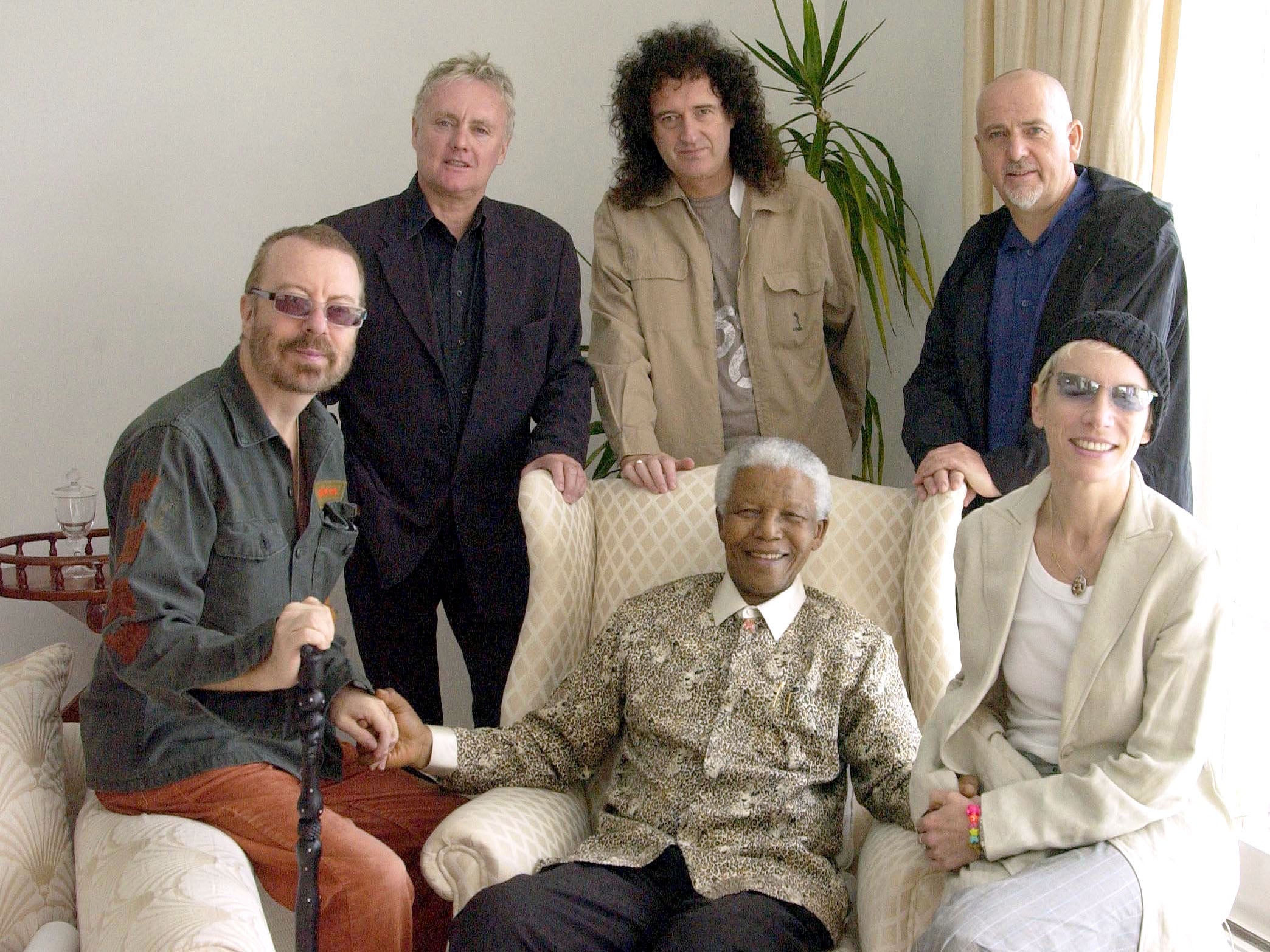
“It’s a strange thing – writing songs was the main focus of my life but I don’t feel like I want to write songs anymore,” Lennox tells me. The very last song she wrote was “Universal Child” for charity in 2010, which was included on her album A Christmas Cornucopia.
“Are there any songs that have actually inspired people into action?” ask Lennox. “People write and sing about injustice. Music does shed a light on emotions and injustices, yet at the same time, when it comes to actual change, we must take more steps than just singing.”
Enjoy unlimited access to 100 million ad-free songs and podcasts with Amazon Music
Sign up now for a 4 month free trial (3 months for non-Prime members)
Enjoy unlimited access to 100 million ad-free songs and podcasts with Amazon Music
Sign up now for a 4 month free trial (3 months for non-Prime members)
Her reflections on her life and career for the charity event highlights how different she is now from the naïve 22-year-old starting out in The Tourists with Stewart, in 1977. The pair went onto international stardom in the synth-pop duo Eurythmics.
“At the very beginning when Dave and I were trying to make this music together in the Eurythmics, at the core of it all was this urge to create something of value and meaning that people would connect to and that would affect them,” she says. “Now if I meet people in the street now they say things like, ‘Wow I grew up with your music’. I don’t know them but they know me through music. It’s very interesting to me. It clearly worked.”
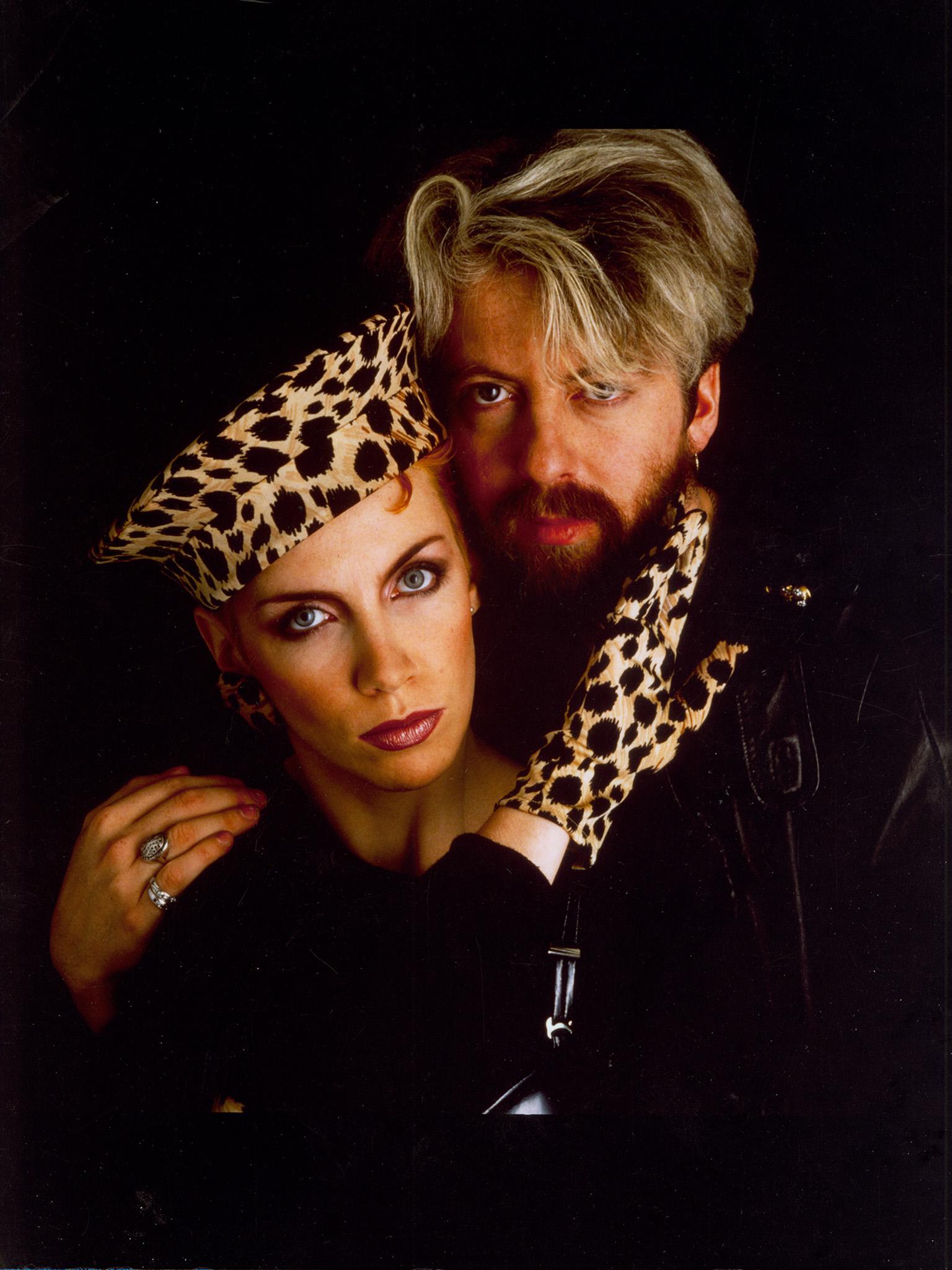
But everything changed in 2003 when Lennox met Nelson Mandela in South Africa to take part in a launch concert for his HIV/Aids Foundation, 46664. “I resolved to do whatever I could to make a difference,” she says.
Lennox, who came from a working-class background in Aberdeen, recalls her parents’ “doom-laden prophecy” that if she didn’t stick it at school, she would “end up in a factory”. She was an artistic, rather than academic, child, who often got reprimanded at school for gazing out of windows.
“I had a sense of purpose but it was against the will of what other people were telling me. I was a whimsical dreamer, against the harsh, grey climate of Aberdeen. I would look at the horizon and think there is something beyond that, but I didn’t know what.”
A piano teacher noticed she had a “musical gift’ when she was seven; later, in the 1970s, she won a place at the Royal Academy of Music in London.
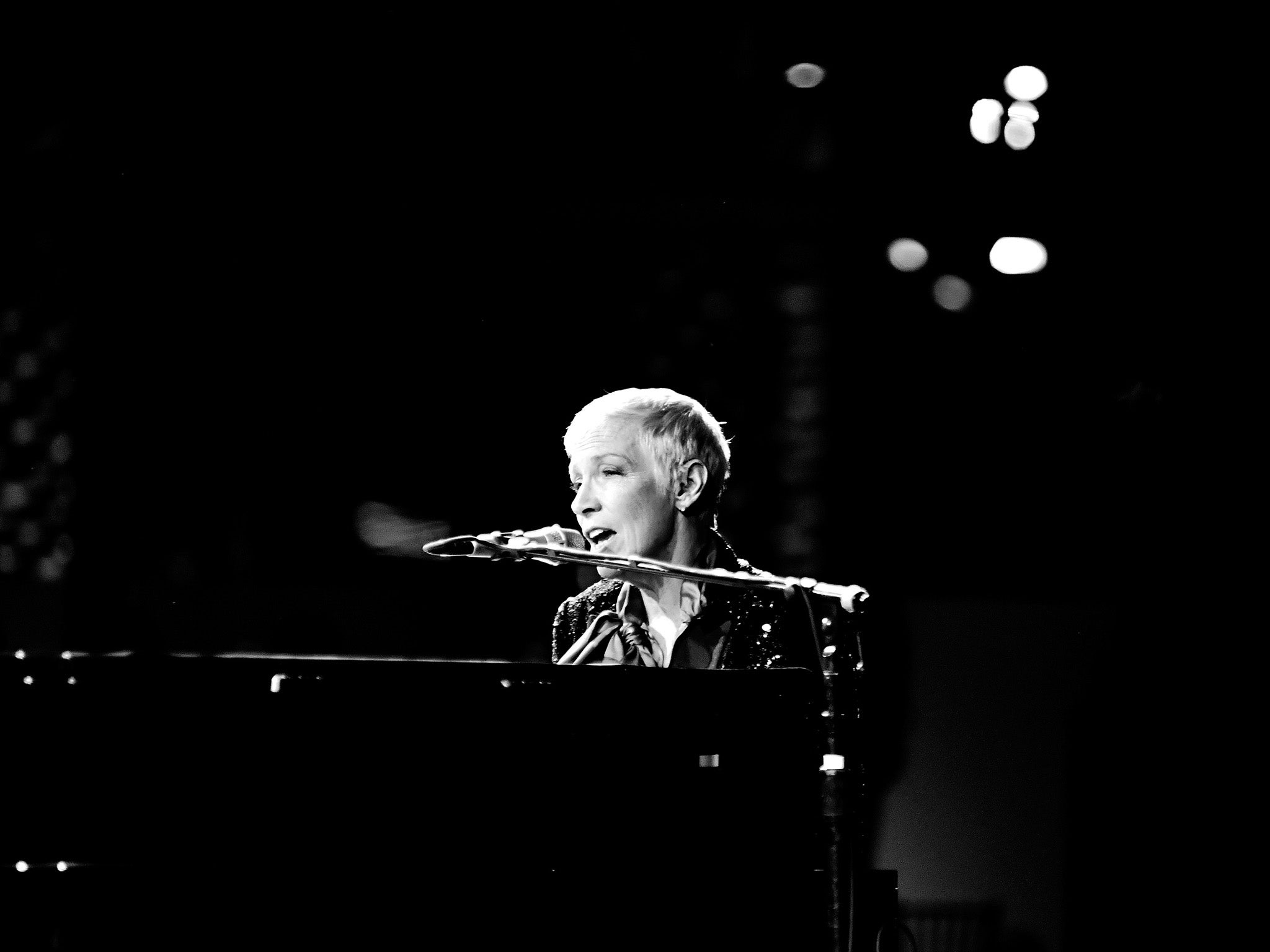
“I thought it would be my passport to the dream of something else,” says Lennox. She studied the flute, piano and harpsichord, but was “terribly unhappy” there. “Being a classical musician is not an easy life – it’s exceedingly competitive. It wasn’t for me.” She was desperate to find a new direction.
At 19 she dropped out of the Royal Academy and had what she calls “my a-ha moment’.
“Oh, I know what I want to do! I want to be a singer,” she says. “But I didn’t have a clue how to do it.
“A female artist was a rarified creature in those days. I used to get asked, ‘What does it feel like being a female in music?’ I didn’t know what they were talking about. I said, I don’t know. I’m just me. But I will be honest with you, it was a boom. It didn’t take much for somebody to be interested in me because there wasn’t much competition. It was very unusual.”
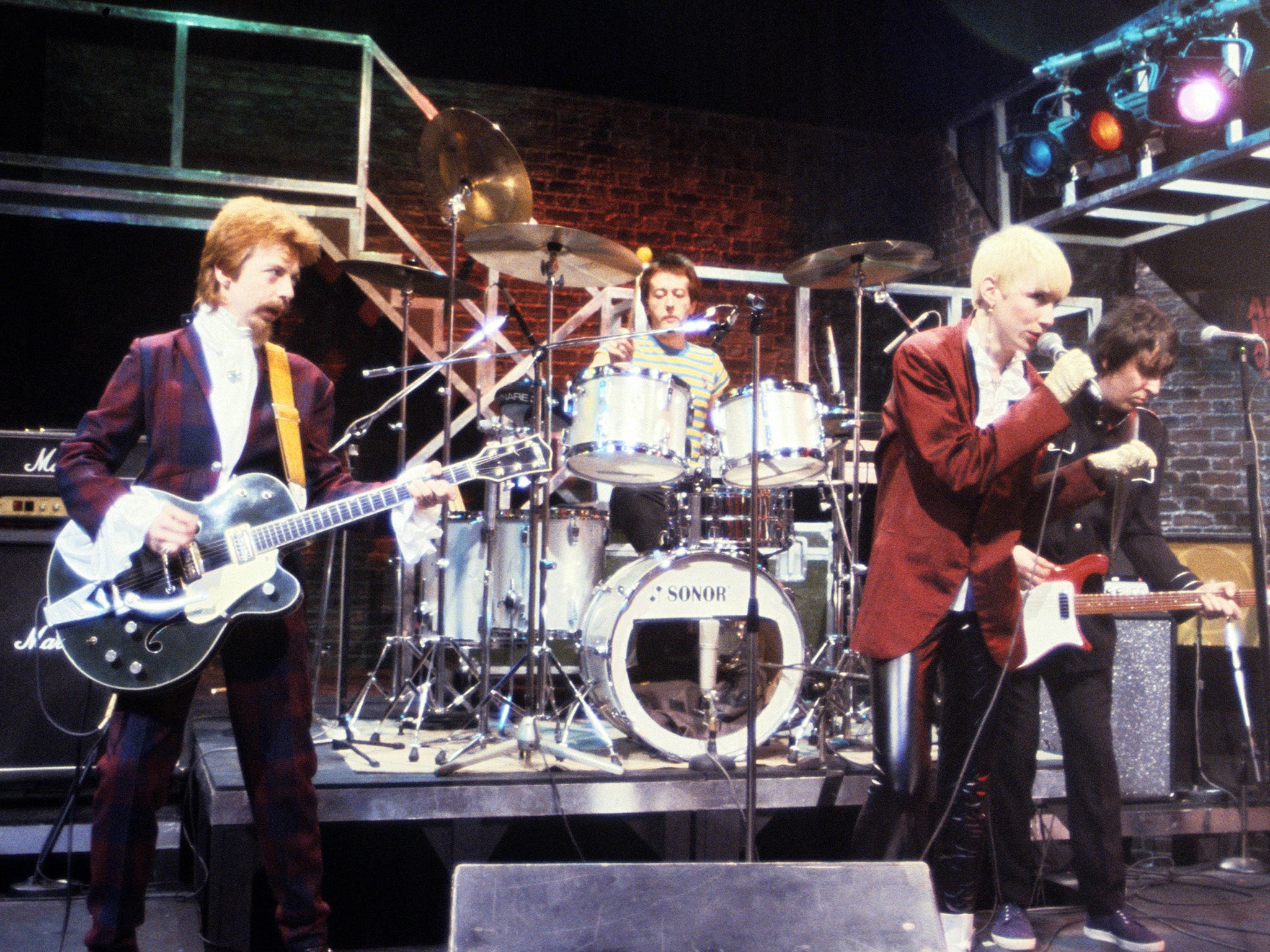
Her decision to try to make it as a singer was a combination of her “rather tragic poems” she had written for herself and “this discovery” of connecting to music “through artists like Joni Mitchell” and all the music she had grown up with. “There was all this American music and Sixties music which was thought-provoking about counter-culture and sub-culture mixed with The Beatles, The Kinks, The Rolling Stones, who I had watched on Top of the Pops.” She adds: “Then it all became crystal clear. I wanted to sing.”
Lennox and Stewart’s partnership, both professionally and romantically, catapulted them to stardom in the Eighties, with classic hits including their only UK number one, “There Must Be An Angel (Playing With My Heart”), in 1985.
“The Eurythmics was like being in Lord of the Rings – these two compatriots get together and off they go into the world of the great unknown, and there are monsters, giants, some wonderful things and then all of a sudden you go off into some dark place, so many betrayals and let-downs.”
Lennox can remember vividly the moment that they first reached number one in America with their breakthrough hit, “Sweet Dreams (Are Made Of This)”, in 1983.
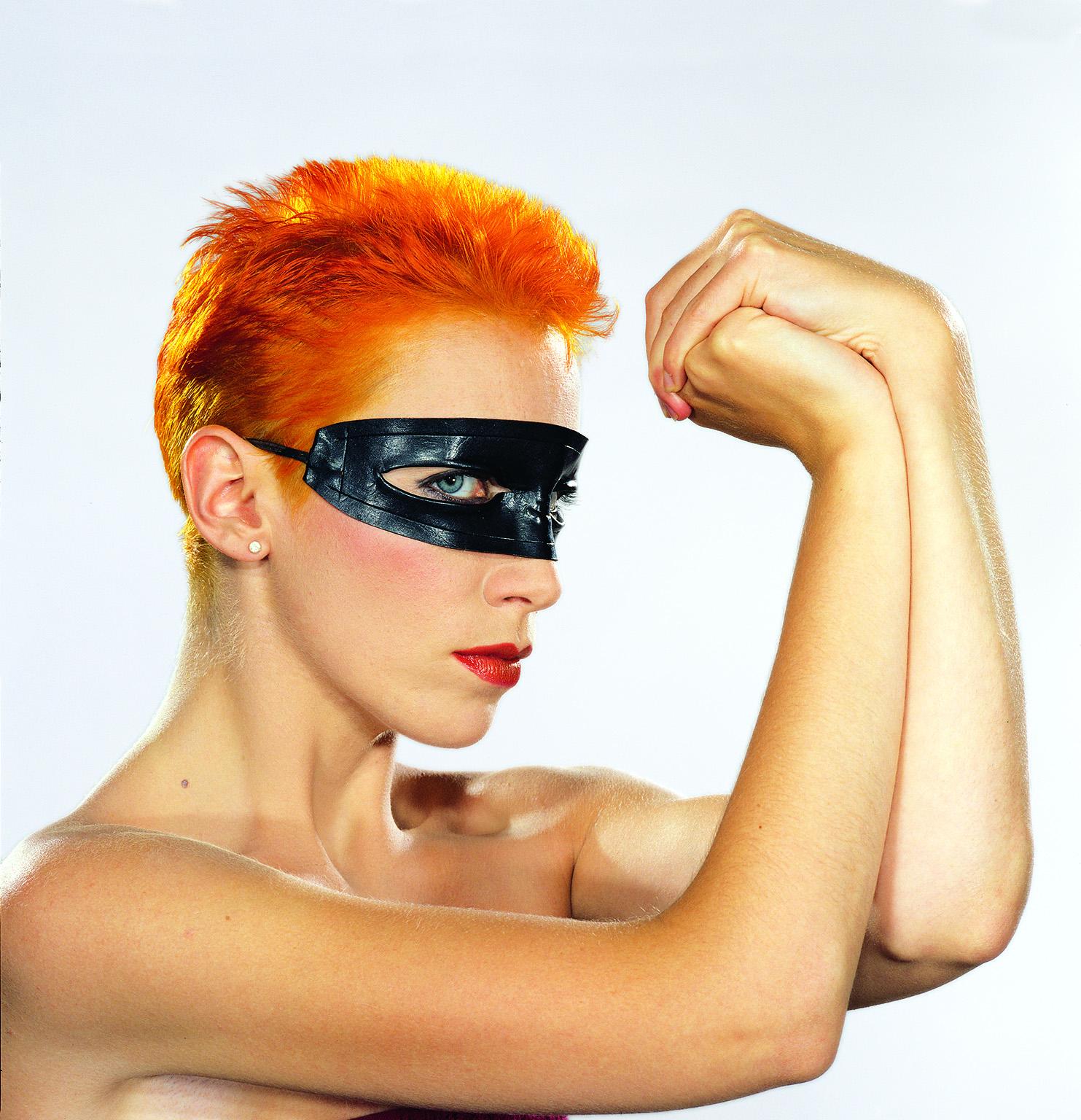
“I was in bed one morning in a hotel in San Francisco on a Eurythmics tour. I was cocooned in this bedroom with the light coming through translucent Japanese rice paper screens. I was very nervous and all I could think about was ‘when is there going to be an earthquake?’ Then I got this phone call to say we were number one in the Billboard charts in America.
“Everything felt vulnerable and strange,” says Lennox, who was hit by the reality of the situation.
“It was like beyond the walls of this room, is a world out there. A world that hasn’t known me, but now there is nowhere to hide. We had been asking for this and now the doors are wide open to us, I was going from anonymity to full exposure.
“I remember walking down the street and realising that everybody knew I was walking down the street. It was then that I learnt to walk with my head down, not making eye contact with anybody. I’m a really quiet person and I felt vulnerable.”
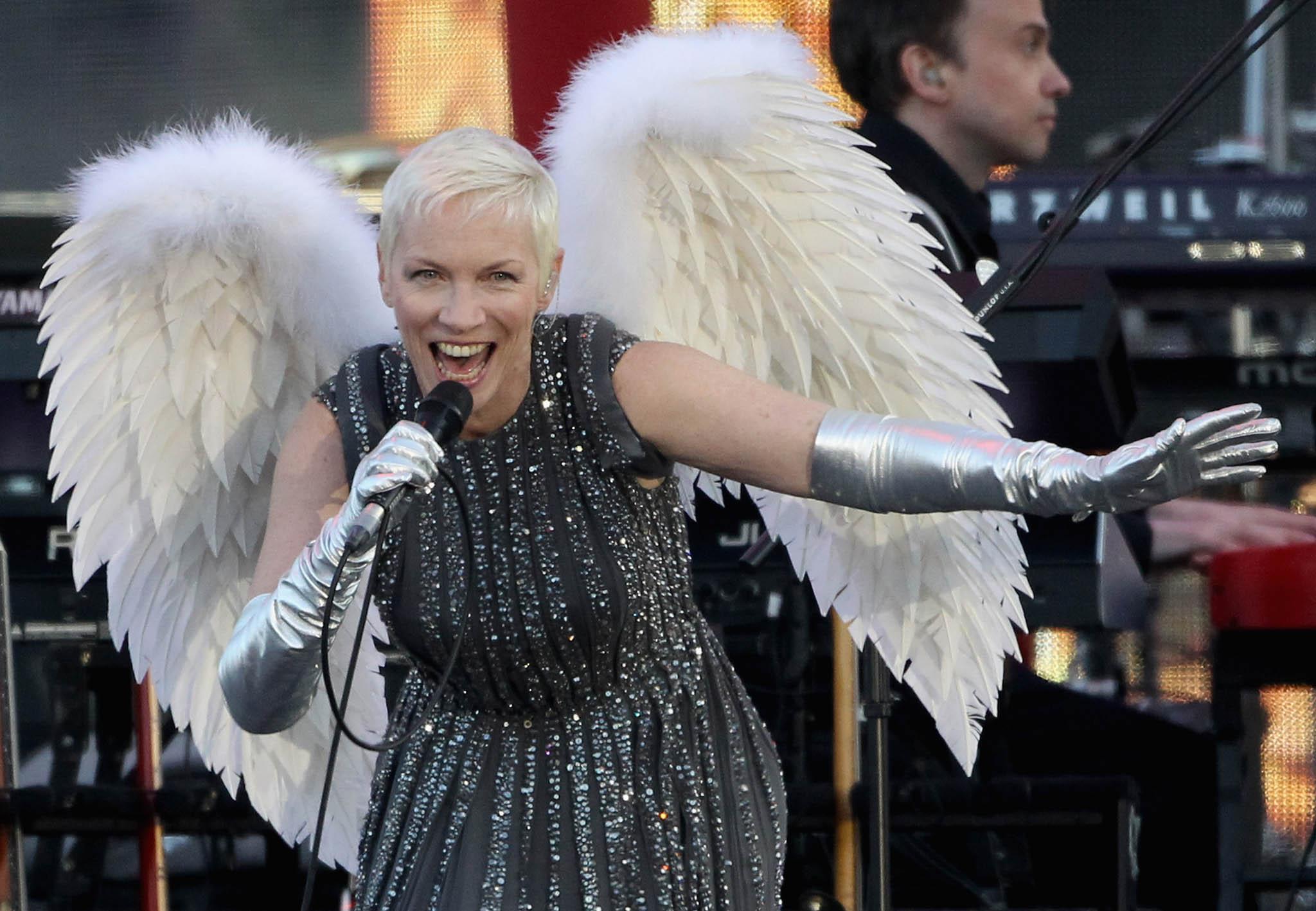
Lennox has never looked back from that moment, as she has never faded into obscurity.
“I still try to have it both ways,” she says. “I have wanted to be known as a creative performer but also to be allowed to be a normal person. That has been a challenge,” she says.
“But I continue to go shopping in supermarkets and walk down the road as normal. I have a lot of touching encounters with strangers when they do ‘the swivel-round’. I’m an older lady now, so I look like me, but it’s not the woman with the red head buzz cut. They wonder, is that me? Sometimes they are overcome by emotion when they realise it is.”
Eurythmics has now been nominated for induction into the Rock and Roll Hall of Fame, for which fans can vote until 5 December. Winners will be inducted on 15 April 2018 in Cleveland, Ohio.
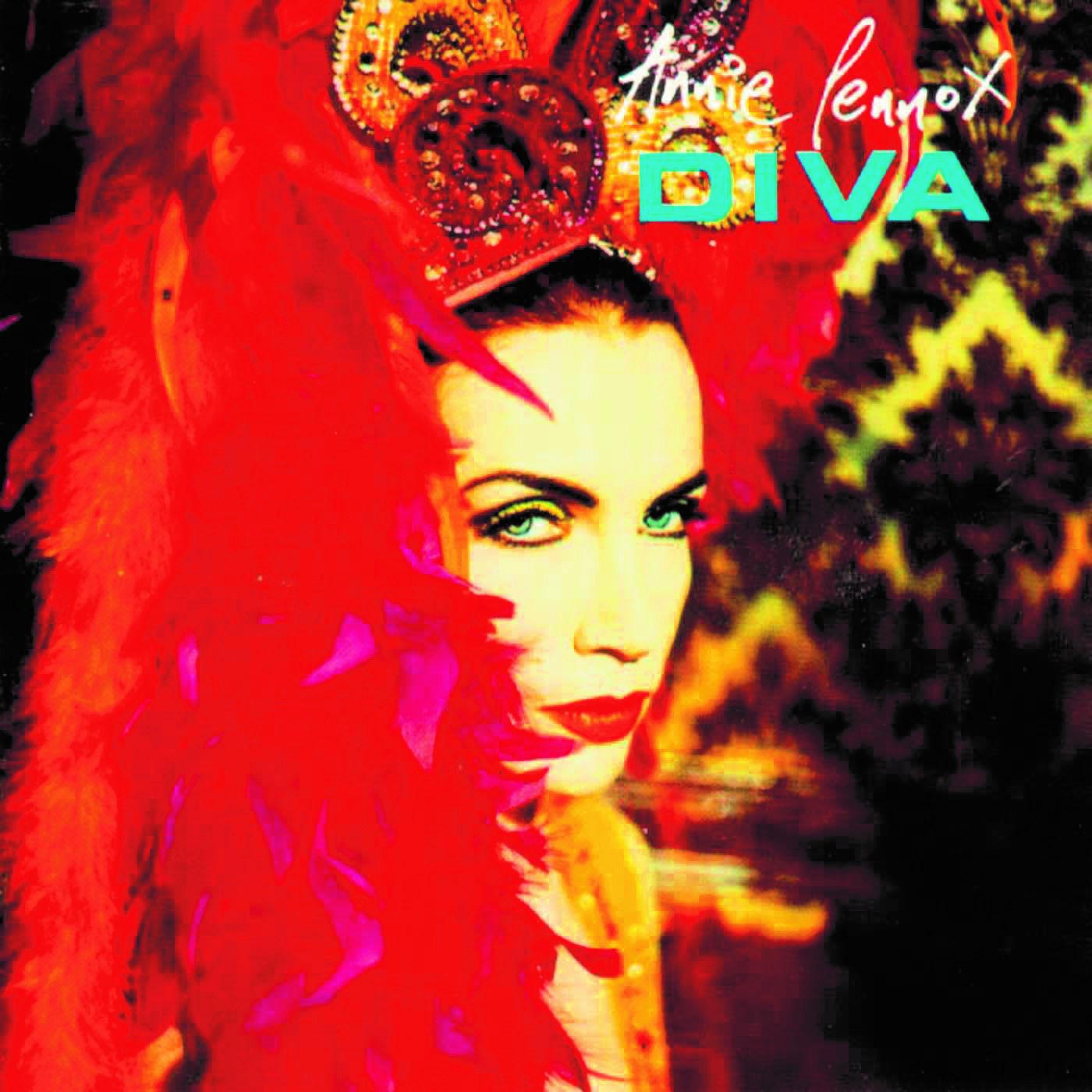
“If we are inducted, it will be a stamp of approval. To become a global artist is hugely significant. I can’t believe Nina Simone has only just been put up for nomination for the first time. To me, it is an anachronism. I am stunned. But if we were to be part of that history, it represents a lot of blood, sweat and tears.”
She lists stage fright, anxiety and exhaustion as part of the job – “it’s like being an athlete”. She recalls confronting fears during her career, including losing her voice before a big concert, any performer’s worst nightmare.
“We were in Australia performing a Eurythmics show in the late Eighties and we had a day to rest, when I got sick and I was lying there saying, ‘Oh my God, I’ve got the flu’.” She was given steroid injections and B12 shots – “the doctors will do what they can to mask the symptoms”. The insurance company was warned.
“I was asked over and over again: “Do you think you can do it?” I said: “I can’t speak”. Then that day, I said “OK, I will try.”
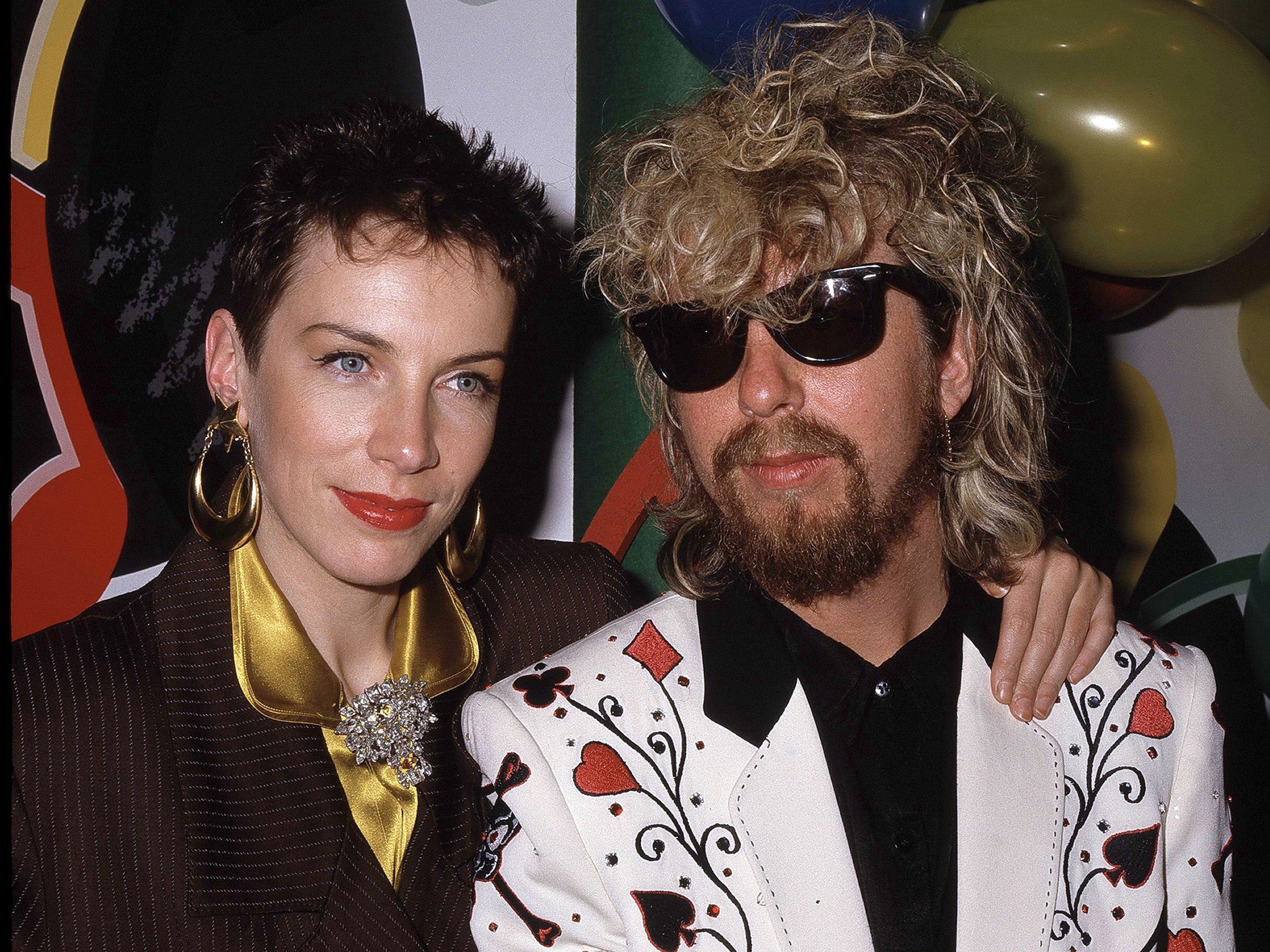
But halfway through “Here Comes the Rain Again”, Lennox’s voice ceased to function. “Nothing was coming out when I tried to sing. I walked off the stage and broke down. I was tearful. I couldn’t perform and they cancelled the second half of the show,” she says. “I took a risk but it was very distressing. It was on the news and of course people were resentful and angry.”
She no longer has any plans to make any more music. “I don’t know if I’m done with music, but I have evolved into a person who needs to talk about things, more than sing about things.”
After meeting Mandela, in 2004, she became a passionate advocate for women and children, particularly those effected by HIV/Aids in Africa.
“Through various campaigns including Comic Relief and Oxfam, I saw extreme poverty in developing countries and my life changed forever,” says Lennox.
One of her greatest inspirations has been Mandela. “His influence on me was huge. I learnt from him that we are all human beings. When you meet somebody who has faced extraordinary trials beyond normal human endurance, because he stood for human rights, liberty and justice, it touched me. I was humbled by it. I thought, ‘What can I do in my own capacity to make a contribution to change?’. It means a lifelong contribution to me.”
Lennox founded her charity The Circle in 2008 – “at first it was just an informal gathering of a few people over dinner” to discuss social inequalities and injustices that women face.
The Circle includes Livia Firth (wife of Colin), Miriam González Durántez (wife of Nick Clegg), Game of Thrones star Gwendoline Christie, actress Maryam D’Abo, Melanie Hall QC, and women who have worked for organisations.
The Circle became a registered charity two years ago and has now raised £2m, with local Circles popping up all over the place.
“We walk the talk,” says Lennox, whose charity focuses on the many areas where women can’t realise their rights, whether that be lack of education, access to healthcare, earning a living wage or being free of violence.
“It’s so hard to represent these issues. It is like shouting fire, and nobody is moving on it,” says Lennox. “There is a lot of denial. We talk about Harvey Weinstein but this is the tip of the iceberg. This patriarchal society that has abused women has been going on forever. We are trying to find out how can we engage people to get involved in global feminism – that is really the challenge for The Circle.”
Annie Lennox – An Evening of Music & Conversation, Sadler’s Wells, 4 March. Tickets available tomorrow at ticketmaster.co.uk/annielennox. To find out about a competition to win a VIP experience at the evening’s show and other prizes visit www.charitystars.com/Annie
Join our commenting forum
Join thought-provoking conversations, follow other Independent readers and see their replies
Comments